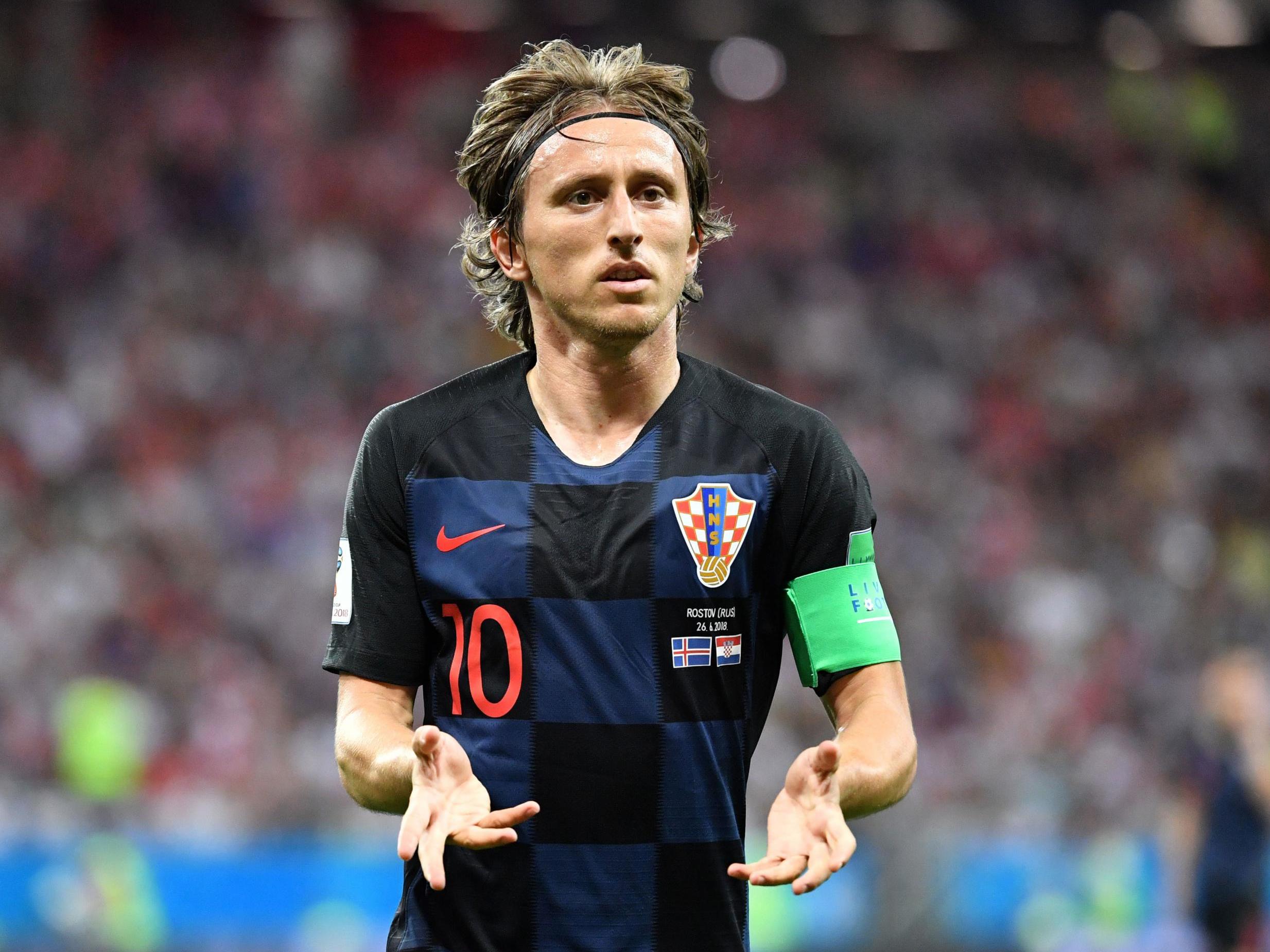England vs Croatia: Luka Modric, Dejan Lovren and the dark side of Croatian football which taints World Cup success
When it comes to Croatia, politics and football always go hand in hand. And as you would imagine, that isn’t necessarily a good thing
If you were able to watch the Russia vs Croatia game live, there is little to no chance you managed to miss the appearance of Croatian president Kolinda Grabar-Kitarovic.
Wearing a bright red suit with the Croatian national team jersey underneath, Grabar-Kitarovic was caught passionately cheering in front of amused Russian PM Dmitri Medvedev as well as Fifa president Gianni Infantino. A couple of days before, after the win over Denmark, she made her way into Croatia’s dressing room making sure to hug every player, some of which weren’t even fully dressed. With one year ahead of presidential elections that move has been interpreted by some as a populist and quite tasteless one, although it’s not as rare to see her on the terraces when the national team plays.
When it comes to Croatia, politics and football always go hand in hand. And as you would imagine, that isn’t necessarily a good thing.
Seen next to Grabar-Kitarovic at the Russia game was Damir Vrbanovic, a former Dinamo Zagreb executive and current executive director of the Croatian FA. He is still able to keep his position and travel to Russia alongside the president even though he was sentenced to three years in prison earlier in June, on a set of football-related charges in what is known as perhaps the most publicised trial in Croatian history. In a country that saw their former PM facing jail time that really has to be considered as a real feat.
But the most prominent figure in that trial is certainly Zdravko Mamic, the former Dinamo executive as well as the man who single handedly controls basically every aspect of Croatian football. Mamic received six-and-half years in jail while his brother Zoran, the former Dinamo manager and a background member of the 1998 Croatia squad, faces four years and 11 months. The verdict confirmed that they claimed illegal profits on the transfers of Dinamo Zagreb players, with Luka Modric and Dejan Lovren being the most renowned faces involved. An investigation showed and trial confirmed that Lovren and Modric unlawfully got half of the transfer fees that Dinamo received from Tottenham Hotspur and Lyon respectively. They then forwarded most of that money to the Mamic family who managed to avoid paying taxes as well.

Zdravko Mamic, who fled to Bosnia and Herzegovina just before the verdict in order to avoid imprisonment, is also a close friend of the president, Grabar-Kitarovic. However, their friendship goes really far. In an interview she gave to Nova TV back in November 2017 Grabar-Kitarovic admitted Mamic organised various events for her, including dinners and – according to some – even birthday parties. Mamic also financially backed her presidential election, resulting with him being a guest of honour during her inauguration ceremony. Although she now denounces the severity of their relationship, Grabar-Kitarovic is still very reserved when talking about it. That’s only the tip of the iceberg known as Mamic’s deep web of connections that range from members of the media all the way up towards politicians and even court officials.
You might say that the football in Croatia is largely used as a cloak in an attempt to cover all the bad things surrounding not only the sport itself but society in general. Ever since Franjo Tudman, the autocratic first Croatian president – who also had an extremely soft spot for using footballers as a unifying element of the society – brought the idea of athletes as “the country’s best ambassadors” to life, politicians opted to use the power of football to impose control over the rising feeling of dissatisfaction. However, with time that mutated to a level where footballers, as well as the officials, are basically claiming a god-like status, and every attempt to question their dubious moves is often seen as ‘unpatriotic’ or even downright dissident behaviour.
For instance, when asked about the great run of the national team at this World Cup, Vrbanovic rushed to say that people back home “should forget about his trial” as well as “the stories regarding Zdravko Mamic”, but should instead only focus on enjoying this fantastic result. A lot of people are taking that stance, claiming that both Mamic and the players should be given a ‘free pass’ for those serious crimes just because they were involved in this success. However, with Modric and Lovren even giving false testimonies – for which they’ll face trial themselves – to save Mamic from receiving jail time, a lot of people in Croatia wonder if they really want to have them as their representatives in front of the whole world. To some there is no doubt at all, renouncing them with a sense of bitter betrayal.
That moral stance on supporting this national team created a widespread divide inside this football crazed nation, but also what seems to be an unprecedented situation in world football. There is a real possibility of a scenario in which Croatia, a small country with a population just slightly over 4 million people, could sensationally lift the World Cup and still have a substantial amount of fans denouncing the players and their achievement. That would really give the ‘football crazed’ term a whole new meaning.
Join our commenting forum
Join thought-provoking conversations, follow other Independent readers and see their replies
Comments
Bookmark popover
Removed from bookmarks